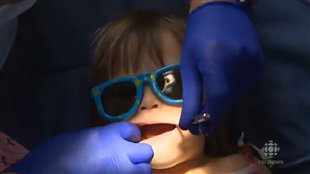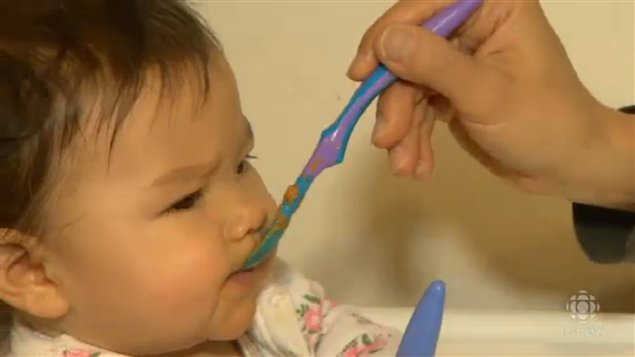Most Canadian mothers do not live with their extended families and are likely to turn to professionals for advice on how to feed their babies. Changes in scientific findings have led to changes in the recommendations made jointly by the Canadian government’s health department, the Breastfeeding Committee for Canada, the Canadian Paediatric Society, and the Dietitians of Canada.

Breastfeeding for a minimum of six months is still seen as the very best for both mother and baby, but infants should be given a supplement of Vitamin D. In the past, parents were told to introduce pureed foods at the age of six month. Now parents are advised to introduce iron-rich foods of different textures. They can use food the family is eating, perhaps leaving out spices and sugar, and simply mashing, mincing or crushing it.
Avoiding food aversions
The change was made because researchers found parents continued to feed their babies pureed foods at seven, eight and nine months and the children were then less likely to accept different textures.
“What we were finding was that this was leading to what we call food aversions, or in other words, picky eaters who weren’t comfortable or didn’t want to have those different textures,” said Kate Comeau, a registered dietitian and spokesperson for Dietitians of Canada.
Allergenic foods okay, but…
Parents are no longer advised to delay introducing foods that can cause allergic reactions such as peanuts, milk, nuts, seafood and eggs because studies have shown that does not reduce the incidence of reactions. In some studies, it appears to have increased the incidence. It is however recommended that new, potentially allergenic foods only be introduced one at a time and two days apart. That way, if there is a reaction, parents will know what food caused it.

‘Sippy cups’ associated with cavities
Canadian parents often give very young children juices or milk in sippy cups, that is, cups with tops on them and only a few holes to drink from. This avoids messy spills. But scientists have found that children given sippy cups often drink out of them over extended periods increasing the risk of tooth decay. So instead, it is recommended children be offered open cups with a little water in them at six months of age, so they may learn how to use them.
Parents should be confident these guidelines were devised over two years using the latest scientific research, says Comeau. They may be revised in future if new scientific discoveries are made, but for now, this is the best advice experts have to offer.







For reasons beyond our control, and for an undetermined period of time, our comment section is now closed. However, our social networks remain open to your contributions.